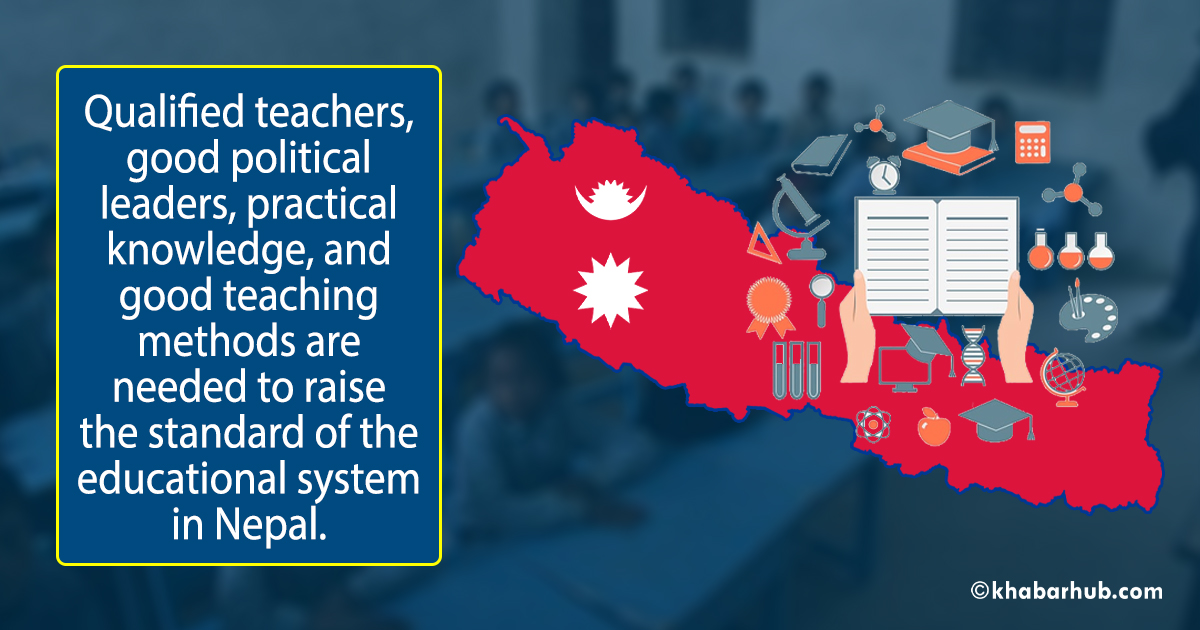Education is an essential factor for the upliftment of an individual. Without education, an individual cannot think about having a bright future.
Education and politics can be considered as the two sides of the same coin. Politics, the higher it sounds the heavier it is.
Education is vital to fulfilling almost each and every activity in our everyday life. Similarly, politics is important because without politics no rules can be formulated or regulated in a country.
For any problem to be solved or for any mistake to be rectified in a nation, we need political parties to work with mutual interest. However, in the case of our country, it is already proved wrong. It is seen that political parties in Nepal do not have mutual understanding, hence, no ray of development can be seen.
The government must take the required steps for the betterment of education in Nepal. The life of a student is very precious and one should help to get good education and skills in order to make their lives easier.
As education has become the most essential ingredient for development, we need a good government, good education minister to circulate a good educational system in Nepal. It may not be wrong to say that more than 50% of women in our country have no access to education.
The plans and policies should be formulated in such a way which can help to educate the citizens of the country equally.
Qualified teachers, good political leaders, practical knowledge, and good teaching methods are needed to raise the standard of the educational system in Nepal.
According to the 2011 BS census, 71.6% of males are literate and 44.5% is the female literacy rate. This data states that women in Nepal are still lagging in education.
The political leaders who delivered speeches regarding fulfilling all the needs of the citizens are not seen after the election. It is high time to work for the unprivileged people.
This is the dark reality of Nepal that the literacy rate is poor even though it is said to have improved in comparison to the past.
At present, we have been introduced to various technologies for learning in different ways. But the question is, despite the development in the learning field, why isn’t the government not serious about the educational system in Nepal as it is a very serious issue to talk about?
The political leaders have not worked for the development of the national development but they are busy delivering long speeches about development, no proper educational system but big promises of fulfilling the dreams of innocent people. Students can dream big, they can dream about their goals.
We need to start protesting for our rights. Many students pretend that their grades don’t define them but grades do matter. The students work day and night to progress in their lives.
Students are the future of the nation. Every student must dream big and it is the responsibility of the teachers to appreciate all the students equally.
The deserving ones are not getting proper facilities and lagging behind. Favoritism has already given a huge loss to the world and one should not disrespect the other’s hard work.
Favoritism must not become a barrier for the better future of an individual. In fact, this leads an individual to stop doing hard work.
I think favoritism is the main reason for which the deserving candidates are lagging behind. No priority to the deserving people.
Practical knowledge must be emphasized. There is a rote learning system in Nepal. The rote learning system is ineffective. Students assume but do not imply them in the real world. One should provide a better learning environment and then expect good leaders to rule the nation tomorrow.
The government must take the required steps for the betterment of education in Nepal. The life of a student is very precious and one should help to get good education and skills in order to make their lives easier.
Students are the future of the nation. Every student must dream big and it is the responsibility of the teachers to appreciate all the students equally.
Students must also work hard for the future as one is solely responsible for their own lives.
(The writer is a student)









Comment